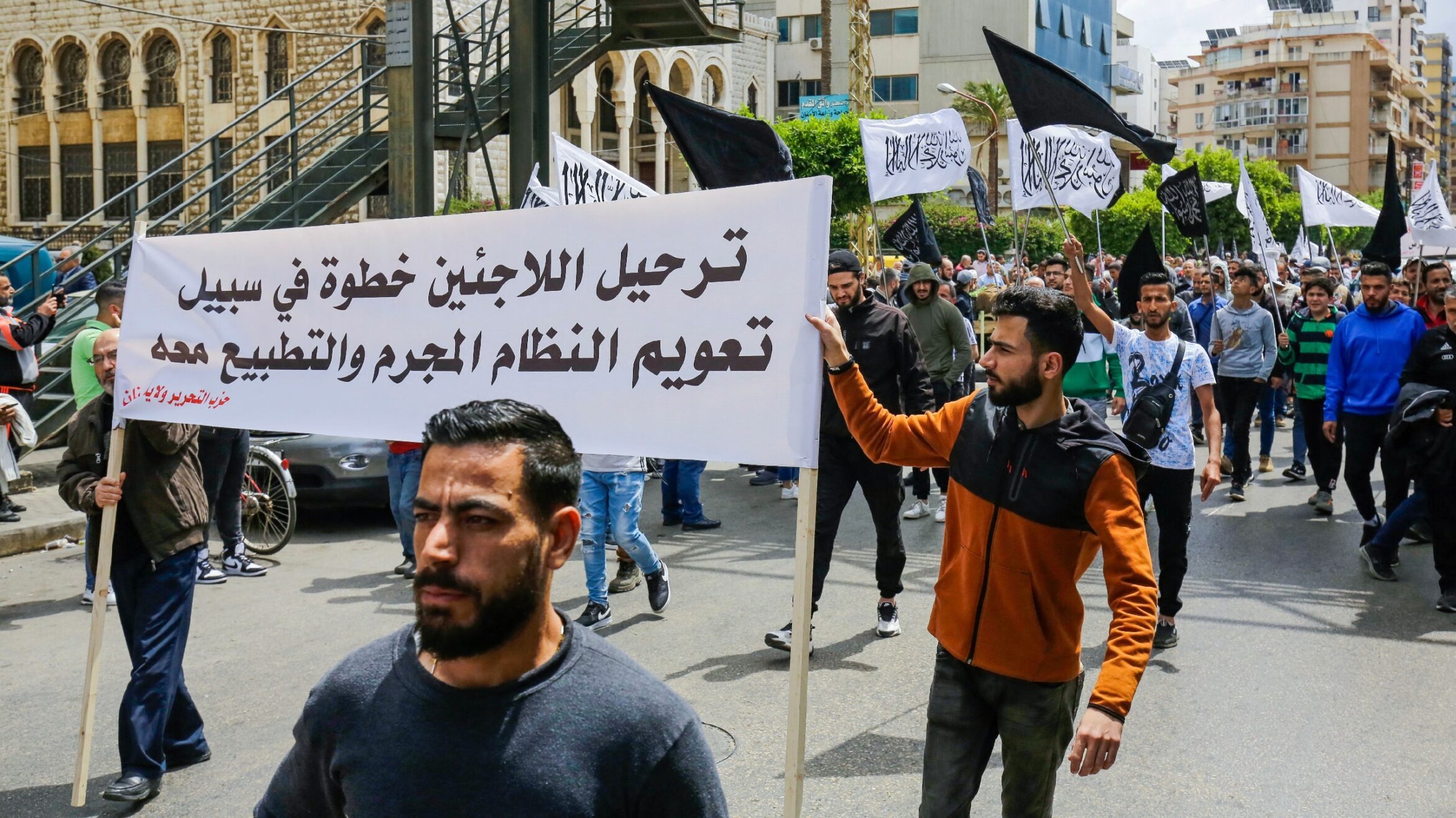Syrian Refugees in Lebanon Suffer Under Rising Deportation Raids, Anti-Syrian Sentiment
According to a UN spokesperson, at least 73 raids were carried out by Lebanese authorities in April, with over 600 Syrian refugees confirmed deported
[Beirut] Syrian refugees in Lebanon have been struggling with alienation, poverty, and despair as they wait for the long and bloody civil war in their home country to play out. But recently a new level of fear has been added to their difficulties, with a series of raids and deportations of Syrian refugees by the Lebanese authorities. On top of that, rising anti-Syrian sentiment in Lebanese society has pushed this vulnerable community to the limit.
In April, the UNHCR was made aware of at least 73 raids confirmed across the country
“Based on interaction with refugees and other reports, the United Nations High Commissioner for Refugees has observed an increasing trend in raids taking place in Syrian communities in the Mount Lebanon area [in central Lebanon] and in other parts of the country, including the north, the south, and the Beqaa Valley [in eastern Lebanon],” UNHCR spokesperson Paula Barrachina Esteban told The Media Line. “In April, the UNHCR was made aware of at least 73 raids confirmed across the country.”
According to Lebanon’s government, about 2 million Syrian refugees reside in Lebanon, of whom only about 830,000 are registered with the UN. For several years already, Lebanon has been in a severe economic crisis, a factor that has pushed nine out of 10 Syrian families into extreme poverty.
When the Syrian civil war began in 2011 and Syrian refugees began flooding in, Lebanon’s official state institutions dealt with the issue with simple denial. The Lebanese state refused to allocate specific camps to host Syrian refugees, as it had done with the Palestinians decades earlier, and it still does not provide any support to Syrian refugees. Many Syrian refugees were forced to find a place to stay wherever they could, such as in the Palestinian camps or in informal settlements around the country.
After news of the recent increase in raids broke out, former President Michel Aoun described the continued presence of Syrian refugees in the country as “a conspiracy against Lebanon.”
“I am not ashamed of saying that the majority of European countries don’t want to receive the refugees and are forcing us to keep them here,” he said at an event held by the Free Patriotic Movement, a Lebanese political party, founded in 1994, that primarily advocates for the rights of Lebanese Christians and promotes a strong, sovereign state free from foreign interference. “What is even more dangerous is that friendly European countries are imposing illegal things on us: They want to integrate the Syrian refugees into Lebanese society.”
Barrachina Esteban told The Media Line that the UNHCR “is also aware of an increase in summary group deportations, involving the arrest of over 1,100 Syrians, out of whom over 600 have been confirmed deported.”
There were also media reports that the Lebanese army’s intelligence unit had been cracking down on undocumented Syrians, arresting them and handing them over to border guards, who would then expel them from Lebanon.
Once back in Syria, many of the refugees face torture, sexual violence, and disappearance. A Syrian army officer who defected and was returned to Syria has been arrested by the Syrian regime, and his relatives fear that he is being tortured.
Asked about Lebanese society’s response to the rising raids, Fadel Fakih, the executive director of the Lebanese Center for Human Rights, told The Media Line that “evictions have increased from Lebanon toward Syria, not for financial reasons” and that “hate speech has increased on social media platforms.”
We hear from the refugees that they are not really safe anymore even in their homes with the raids happening in their area, and many have stopped commuting as a result
The center has been monitoring the violations of Syrian refugees’ human rights.
“We hear from the refugees that they are not really safe anymore even in their homes with the raids happening in their area, and many have stopped commuting as a result,” Fakih said. “We have also seen an increase in Syrian-Lebanese conflicts or incidents.”
With Lebanon in what the World Bank has described as one of the world’s worst economic crises since the 1850s, many Lebanese officials see the Syrians as the scapegoats to blame. The influx of refugees has caused “dangerous demographic changes,” said Social Affairs Minister Hector Hajjar. “We will become refugees in our own country,” he said.
The Lebanese authorities have launched several strategies to get the Syrian refugees to leave. A national census was initiated by caretaker Interior Minister Bassam Mawlawi last week, which requires local officials to register Syrian refugees in their jurisdictions and make proof of registration mandatory for leasing or buying real estate and accessing contracts and official documents.
At the same time, many municipalities have issued decrees limiting the movements of refugees at night. One Syrian refugee was found dead by apparent suicide at the beginning of May following threats of deportation to Syria, where he was wanted for mandatory military service, according to a relative of his in Turkey.


